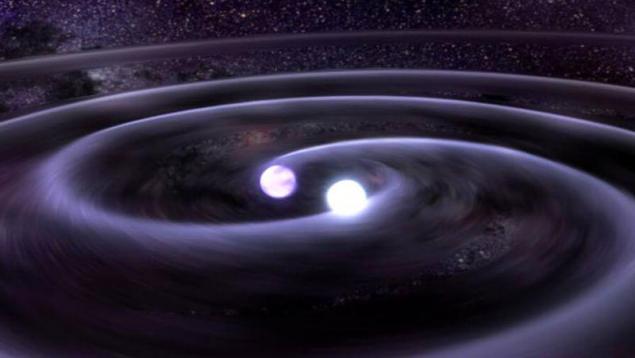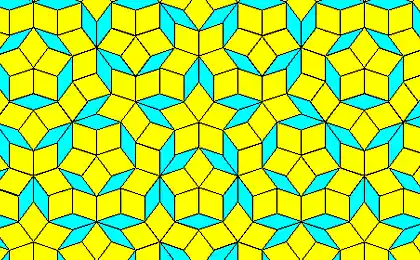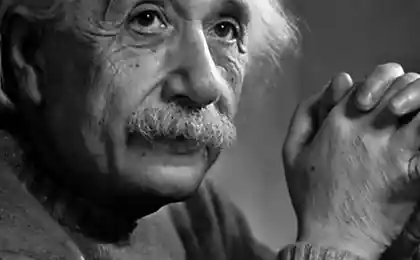512
The great mistake of Einstein
One hundred years since albert Einstein published his first works presenting the crown of his intellectual activity, the General theory of relativity. This theory showed that space is malleable and can be bent under the influence of matter. Because a) the shape of space changes under the influence of the distribution of matter and energy, b) the material moves, and hence form dynamic space — twists, bends and changes with time. This idea was truly revolutionary.
Initially, however, the consequences of this theory was not completely obvious, lacked the required data. This has led to a number of changes in the theory; over time they developed a deeper understanding. One such case is particularly interesting.

The repulsive cosmological constantin Spite of the fact that the first work of Einstein describing relativity in November 1915, was, in fact, the underlying theory of gravity, he and others applied it to the entire Universe. One of the first consequences was that since all matter attracts other matter, static universe will be short-lived static. The gravitational pull will lead to the collapse of all matter into one point. And even if you start with a static universe, the mass distribution will increase.
In those days it was believed that the universe was constant and eternal, unchanging — at least on the major levels. This led to the fact that Einstein added to his original equations the new variable in 1917. While the original formulation of General relativity included only the attractive form of gravity, a new term — the cosmological constant — was repulsive. Attractive and repulsive form of gravity could be set, so they balanced each other, being thus fixed and immutable space.
This situation changed when it was built a powerful telescope — hooker telescope at mount Wilson shortly after the recording of Einstein's gravitational equations. Despite the fact that the discovery of the fact of removal of galaxies from the milky Way is credited to Edwin Hubble, in fact, the story was much more complicated. Astronomers have discussed the situation already in the early 1920s.
However in 1929 Hubble published a paper which not only found that galaxies are moving away from the milky Way, but that more distant galaxies are moving faster. That is, the universe is not static. She is expanding. This observation (and pre-jablowski) has led to the fact that the Belgian priest Georges Lemaitre in 1931 suggested that the universe started from a small and compact state (he called it "cosmic egg"), now known as the Big Bang.
Realizing that his earlier speculation on the subject of unchanging cosmos was wrong, Einstein removed the cosmological constant from his equations. Physicist George Gamow said that Einstein considered it his "greatest mistake". However, it is still unclear who is the author of this phrase, Einstein, or Gamow, also a great Joker.
Despite the fact, if Einstein said this catch phrase, he definitely regretted adding this term and thought that his elimination would be correct. Without a static universe, there is simply no need to add it into the original equation. For almost 70 years scientists as one thought it was true: the Universe is expanding.
Universe at gunpointIn the middle of the 20th century, astronomers were actively discussing the fate of the Universe. If the universe started from a dense state, as proposed by the theory of the Big Bang, and is expanding, then gravity slows this expansion. There remained the question of whether overcome gravity this extension (which will lead to a Large Compression) or the extension to last forever — but the fact that the expansion should slowly slow down, seemed indisputable.
Although suspected previously, in 1998, two experiments that studied this question, found the answer, which was kind of a surprise. The expansion of the Universe is not slowed down. It accelerated! For this observation Brian Schmidt from the Observatory Stromolo the Australian national University and Adam Riess from the University of California at Berkeley and Saul Perlmutter of the National laboratory Lawrence Berkeley received the Nobel prize in physics in 2011. Acceleration of the expansion has been confirmed and is now considered a well established fact.
However, this observation led to the obvious question. If, according to the General theory of relativity, gravity is the force of attraction, which may explain the accelerating expansion? That pushes the matter in the Universe? Maybe it's time to revive Einstein's cosmological constant?
Answer: Yes, no, maybe.
To explain the observation, scientists are now saying that cosmological constant is needed. But it may be that, but maybe not the one that was proposed by Einstein.
Enter the quintessentialAstronomers use the term "dark energy" to describe energy field of the Universe, which in fact is a form of repulsive gravity. Observation telescopes show that this energy field now exceeds the more known to us in the form of attractive gravitation throughout the Universe that leads to accelerated expansion.
What do scientists know about this dark energy? One question is whether it is constant or changing. Cosmological constant Einstein was a field of constant energy density. It's a little counterintuitive, because constant density and increase of energy means an increase in energy, but is allowed in the framework of General relativity. On the other hand, there is no reason to assume that dark energy would be constant. Then we proposed another form of dark energy is "quintessence". The quintessence is a type of dark energy that can change over time.
Although scientists are convinced that dark energy exists, questions about its nature remain unanswered. Permanent or not, changes with time or not constant, or quintessence? And, of course, given the scope of the question, scientists have come to a powerful experimental programs to search for answers.
Dark Energy Survey is an ambitious attempt to understand the nature of dark energy. Measuring the speed of distant galaxies and supernovae, the scientists, hopefully, will be able to find the answer to this important mystery. And the answer will be the truly cosmic implications.
Depending on whether dark energy is constant or quintessence, the universe will be a different end.
Dark energy almost certainly exist and were predicted by Einstein almost a hundred years before its detection. The story of how he added it in theory, and then removed, fairly well-known, as well as the fact that Einstein regretted his temporary inclusion. 80 years later, after Einstein considered the cosmological constant a mistake, it became almost obvious that it exists — and the greatest mistake of Einstein, it might delete the cosmological constant introduced in the equation with his own hands.
P. S. And remember, only by changing their consumption — together we change the world! ©
Join us in Facebook , Vkontakte, Odnoklassniki
Source: hi-news.ru
Initially, however, the consequences of this theory was not completely obvious, lacked the required data. This has led to a number of changes in the theory; over time they developed a deeper understanding. One such case is particularly interesting.

The repulsive cosmological constantin Spite of the fact that the first work of Einstein describing relativity in November 1915, was, in fact, the underlying theory of gravity, he and others applied it to the entire Universe. One of the first consequences was that since all matter attracts other matter, static universe will be short-lived static. The gravitational pull will lead to the collapse of all matter into one point. And even if you start with a static universe, the mass distribution will increase.
In those days it was believed that the universe was constant and eternal, unchanging — at least on the major levels. This led to the fact that Einstein added to his original equations the new variable in 1917. While the original formulation of General relativity included only the attractive form of gravity, a new term — the cosmological constant — was repulsive. Attractive and repulsive form of gravity could be set, so they balanced each other, being thus fixed and immutable space.
This situation changed when it was built a powerful telescope — hooker telescope at mount Wilson shortly after the recording of Einstein's gravitational equations. Despite the fact that the discovery of the fact of removal of galaxies from the milky Way is credited to Edwin Hubble, in fact, the story was much more complicated. Astronomers have discussed the situation already in the early 1920s.
However in 1929 Hubble published a paper which not only found that galaxies are moving away from the milky Way, but that more distant galaxies are moving faster. That is, the universe is not static. She is expanding. This observation (and pre-jablowski) has led to the fact that the Belgian priest Georges Lemaitre in 1931 suggested that the universe started from a small and compact state (he called it "cosmic egg"), now known as the Big Bang.
Realizing that his earlier speculation on the subject of unchanging cosmos was wrong, Einstein removed the cosmological constant from his equations. Physicist George Gamow said that Einstein considered it his "greatest mistake". However, it is still unclear who is the author of this phrase, Einstein, or Gamow, also a great Joker.
Despite the fact, if Einstein said this catch phrase, he definitely regretted adding this term and thought that his elimination would be correct. Without a static universe, there is simply no need to add it into the original equation. For almost 70 years scientists as one thought it was true: the Universe is expanding.
Universe at gunpointIn the middle of the 20th century, astronomers were actively discussing the fate of the Universe. If the universe started from a dense state, as proposed by the theory of the Big Bang, and is expanding, then gravity slows this expansion. There remained the question of whether overcome gravity this extension (which will lead to a Large Compression) or the extension to last forever — but the fact that the expansion should slowly slow down, seemed indisputable.
Although suspected previously, in 1998, two experiments that studied this question, found the answer, which was kind of a surprise. The expansion of the Universe is not slowed down. It accelerated! For this observation Brian Schmidt from the Observatory Stromolo the Australian national University and Adam Riess from the University of California at Berkeley and Saul Perlmutter of the National laboratory Lawrence Berkeley received the Nobel prize in physics in 2011. Acceleration of the expansion has been confirmed and is now considered a well established fact.
However, this observation led to the obvious question. If, according to the General theory of relativity, gravity is the force of attraction, which may explain the accelerating expansion? That pushes the matter in the Universe? Maybe it's time to revive Einstein's cosmological constant?
Answer: Yes, no, maybe.
To explain the observation, scientists are now saying that cosmological constant is needed. But it may be that, but maybe not the one that was proposed by Einstein.
Enter the quintessentialAstronomers use the term "dark energy" to describe energy field of the Universe, which in fact is a form of repulsive gravity. Observation telescopes show that this energy field now exceeds the more known to us in the form of attractive gravitation throughout the Universe that leads to accelerated expansion.
What do scientists know about this dark energy? One question is whether it is constant or changing. Cosmological constant Einstein was a field of constant energy density. It's a little counterintuitive, because constant density and increase of energy means an increase in energy, but is allowed in the framework of General relativity. On the other hand, there is no reason to assume that dark energy would be constant. Then we proposed another form of dark energy is "quintessence". The quintessence is a type of dark energy that can change over time.
Although scientists are convinced that dark energy exists, questions about its nature remain unanswered. Permanent or not, changes with time or not constant, or quintessence? And, of course, given the scope of the question, scientists have come to a powerful experimental programs to search for answers.
Dark Energy Survey is an ambitious attempt to understand the nature of dark energy. Measuring the speed of distant galaxies and supernovae, the scientists, hopefully, will be able to find the answer to this important mystery. And the answer will be the truly cosmic implications.
Depending on whether dark energy is constant or quintessence, the universe will be a different end.
Dark energy almost certainly exist and were predicted by Einstein almost a hundred years before its detection. The story of how he added it in theory, and then removed, fairly well-known, as well as the fact that Einstein regretted his temporary inclusion. 80 years later, after Einstein considered the cosmological constant a mistake, it became almost obvious that it exists — and the greatest mistake of Einstein, it might delete the cosmological constant introduced in the equation with his own hands.
P. S. And remember, only by changing their consumption — together we change the world! ©
Join us in Facebook , Vkontakte, Odnoklassniki
Source: hi-news.ru























